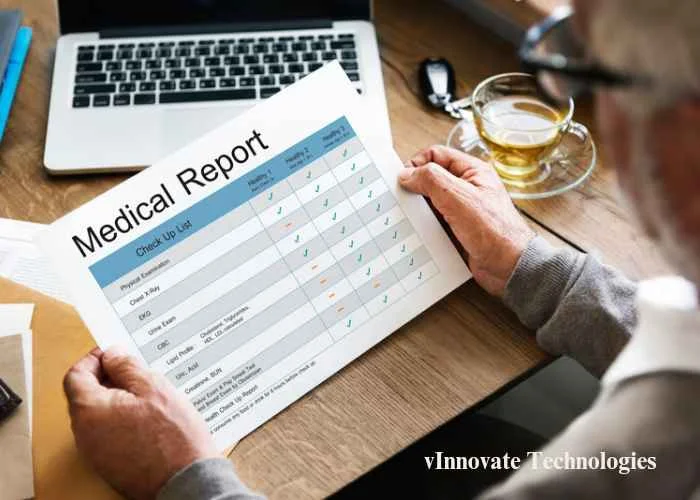Revolutionizing Healthcare with OCR Automation : Enhancing Efficiency in the Medical Sector

In today's technologically advanced world, automation has become a game-changer across various industries, and the healthcare sector is no exception. One area where automation is making significant strides is Optical Character Recognition (OCR) technology. OCR has proven to be a transformative tool in streamlining administrative tasks, digitizing medical records, and improving overall efficiency in the medical sector. In this blog post, we will explore the potential of OCR automation in healthcare and how it is revolutionizing the industry.
Understanding OCR in Healthcare:
Optical Character Recognition (OCR) is a technology that converts scanned or handwritten documents into machine-readable text. In the healthcare sector, OCR automation enables the extraction of vital information from medical records, prescriptions, lab reports, and other documents. This technology eliminates the need for manual data entry, reducing errors and saving valuable time for healthcare professionals.
Streamlining Administrative Tasks:
Healthcare organizations handle a vast amount of paperwork daily, from patient intake forms to insurance claims. OCR automation can significantly reduce the burden of administrative tasks by automatically extracting relevant information from these documents. This eliminates the need for manual data entry, minimizing errors and allowing healthcare staff to focus more on patient care.
Digitizing Medical Records:
The transition from paper-based medical records to electronic health records (EHRs) has been a priority in the healthcare industry. OCR technology plays a crucial role in this digital transformation by converting physical records into digital formats. With OCR, healthcare providers can efficiently capture patient data, lab results, and medical histories, making information easily accessible, searchable, and shareable across different healthcare systems.
Enhancing Accuracy and Efficiency:
OCR automation significantly improves accuracy and efficiency in the medical sector. By eliminating manual data entry, the risk of errors due to human factors is greatly reduced. Healthcare professionals can access patient information quickly and accurately, leading to better-informed decisions, improved diagnoses, and enhanced patient care.
Enabling Data Analysis and Insights:
OCR automation not only digitizes medical records but also enables data analysis and insights. By extracting structured data from documents, OCR technology empowers healthcare organizations to analyze trends, identify patterns, and gain valuable insights for research, population health management, and decision-making. This data-driven approach enhances patient outcomes, resource allocation, and overall healthcare delivery.
Improving Compliance and Security:
Maintaining compliance with regulatory standards, such as HIPAA (Health Insurance Portability and Accountability Act), is crucial in healthcare. OCR automation helps in ensuring compliance by securely capturing, storing, and managing sensitive patient information. The technology includes features like data encryption, access controls, and audit trails, strengthening data security and privacy in the medical sector.
Future Implications and Challenges:
As OCR automation continues to advance, the future implications for healthcare are promising. Machine learning and artificial intelligence are being integrated into OCR systems, enhancing accuracy, expanding capabilities, and opening doors for innovative applications. However, challenges remain, including addressing privacy concerns, adapting to varying document formats, and ensuring interoperability between different healthcare systems.
Conclusion:
OCR automation is revolutionizing the healthcare sector by streamlining administrative tasks, digitizing medical records, and improving overall efficiency. This transformative technology is empowering healthcare professionals to deliver better patient care, make data-driven decisions, and enhance operational effectiveness. As OCR technology continues to evolve, it holds immense potential for further advancements, shaping the future of healthcare in remarkable ways.
